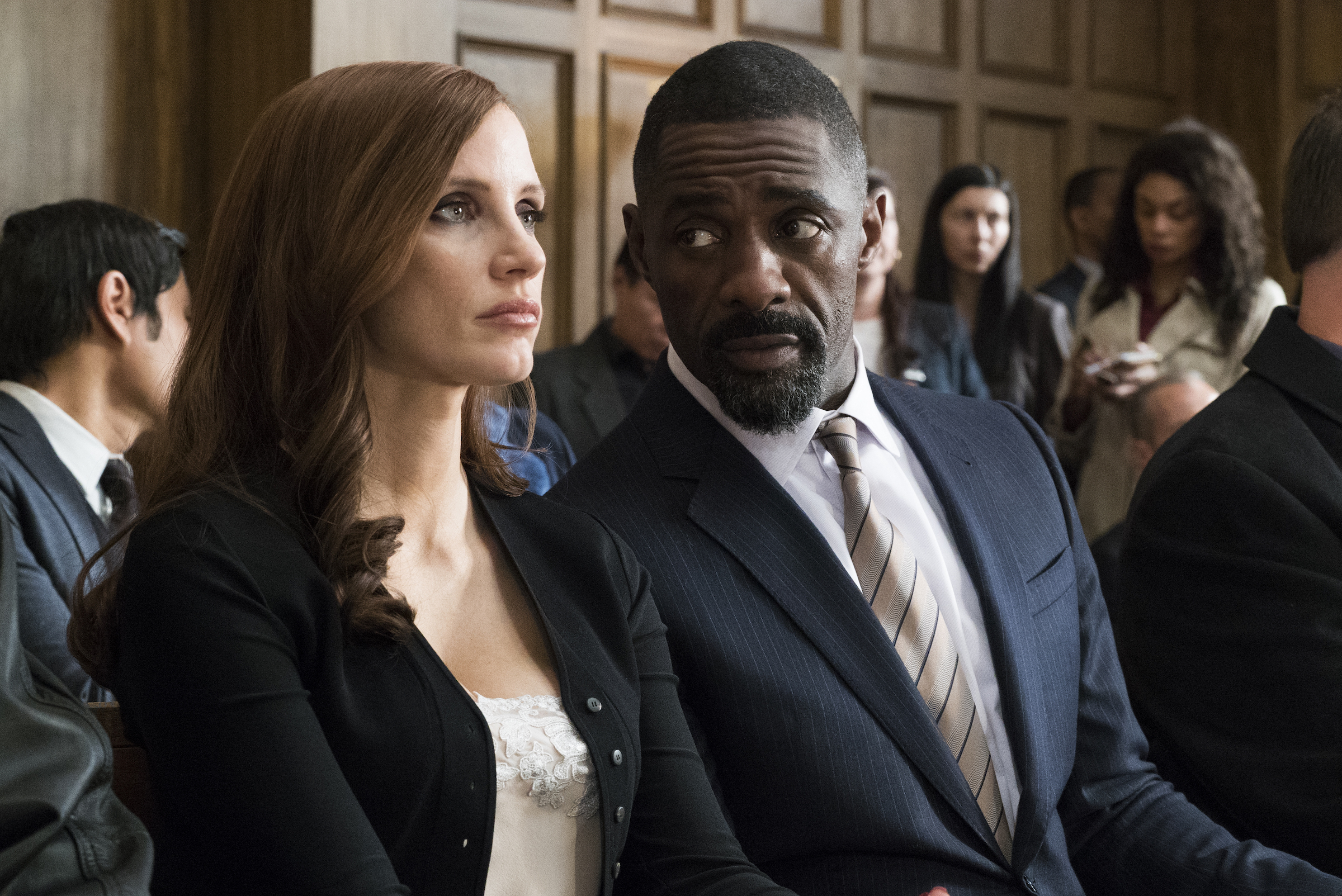Molly's Game
Directed by Aaron Sorkin (2017)
by Melissa Strong
Molly's Game is the 2017 holiday release that alternates action with pathos grabs, entertaining enough and safe to see with relatives who don’t get your taste in film. It is similar to other December releases, such as American Hustle (2013) and The King’s Speech (2010): star-studded and based on real events, with an occasionally intrusive score and a triumphant hero. It does the average Christmas release one better by including a female protagonist and a few more people of color. However, Molly’s Game is less successful in its attempts to be topical and profound.
Jessica Chastain is appealing as Molly Bloom, the former competitive skier who ran a high-stakes poker game frequented by celebrities, royalty, and the mob. Idris Elba is Charlie Jaffey, the defense attorney who reluctantly takes Molly’s case after the FBI busts her. Kevin Costner is Molly’s demanding dad and first ski coach, while Graham Greene plays the judge presiding over her trial. Though they share just one scene, the equally grizzled and jowly Costner and Greene make for a weird Dances with Wolves (1990) reunion. Molly’s Game aims for some of the same pathos as Dances with Wolves, but Molly herself is no Stands with a Fist.
Transforming from gritty athlete to host of elite poker games requires Molly to become what Charlie calls the “Cinemax version” of herself. That is to say kinda skanky-looking, in concession to the expectations of her privileged and powerful male clientele. Molly’s sensible shoes, ponytails, and JC Penney dresses are replaced with Louboutins, ostentatious jewelry, and boobalicious necklines. In keeping with the odd and surely unintentional 90s references, the “Cinemax version” of Molly looks a lot like Julia Roberts in Pretty Woman (1990).
And, sadly, much as audiences might want to root for the title character, Molly’s Game affords her about as much development and autonomy as the sex worker Roberts played. This is where the film stumbles, following a promising opening scene that establishes Molly as a tough underdog whose steely self-control and athletic prowess overpower (literally, thanks to the ski gear) her pretty face. Even though Molly relies on her wits and hard work to become a successful businesswoman, Molly’s Game then becomes a movie about why she went from Olympic hopeful to criminal to super-principled former criminal (hint: DADDY ISSUES!).
In this way, Molly’s Game is not the movie many are making it out to be, a cinematic #MeToo sticking it to powerful sexist dudes. Sure, there are some moments where she gives them the what for. But then they give her the what for. And her success is on their terms. Molly’s victories are incomplete and fleeting. It’s reminiscent of that scene in Pretty Woman where Vivian (Roberts) gets kicked out of the fancy boutique.
Aaron Sorkin’s uneven direction contributes to Molly’s Game’s lack of cohesion. A climactic scene between Chastain and Costner is vomitous and over scored, offering Molly a dad in shining armor at a time when I would have preferred to see her self-empowered. The film can’t seem to decide whether to portray Molly as a go-girl tubthumper or a wayward woman in need of rescue. Molly’s Game never reveals who Molly really is; instead, it defines her by how she reacts to powerful men in her life. And it robs Molly of the victory of her case being dismissed by leaving her wondering “now what?”, which a movie with a male protagonist likely would not do.
All that to say, nice try, Hollywood, but you still treat women like a lesser foreign species. Even Chastain can’t win this Game.

